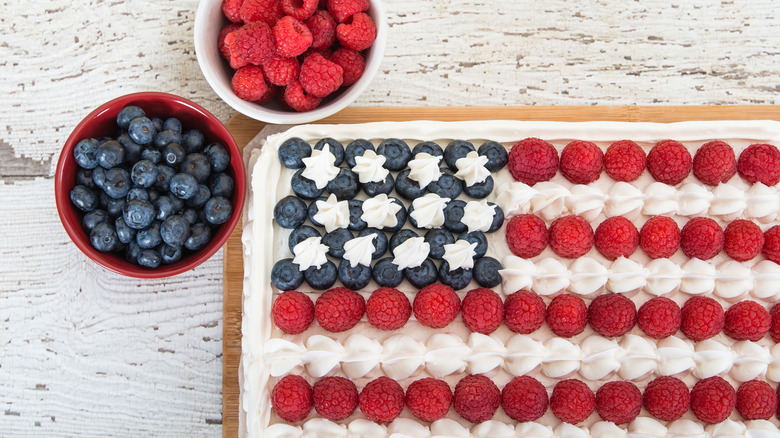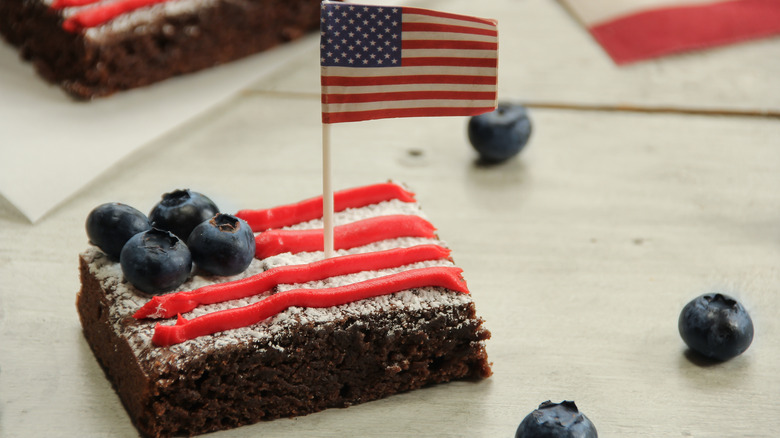The Celebratory Food Served In Honor Of America's Earliest Elections
You might've been to a Fourth of July barbecue, but have you ever eaten a slice of cake on Election Day? The early Americans did (and you're missing out). In New England, says What's Cooking America, the Election Day celebration was as important as Thanksgiving.
"But," you might be asking, "why Election Day?" The reason for the season was all about logistics. Election Day festivities were a form of colonial food tourism. Elections were held in the center of towns, meaning voters who lived way out in the country had to make a sometimes major jaunt for the occasion, per Atlas Obscura. Folks had to travel to vote, and what better excuse to visit friends in far-off towns? It was an opportunity to have a party and celebrate each other's company — which usually happened with a special treat called election cake.
Election cakes were dense, leavened cakes made with sourdough starters. The first iterations were a version of fruitcake packed with raisins, currants, molasses, and spices. Brandy was added into the mix later on, and eventually, wine, too. There's even a recipe for election cake in Amelia Simmons's 1976 book "American Cookery," the first known cookbook written in U.S. history. These were massive cakes; Simmons's recipe requires 14 pounds of sugar and 12 pounds of raisins. It also called for 30 quarts of flour, 36 eggs, and 10 pounds of butter via Fox News. But election cake had many more functions than simply being a fun holiday treat.
A vote for community
The American Historical Association calls the Election Day parties of yore an essential civic tradition. But, like so many traditions of the past, it was a tradition of hugely segregated activities along either side of a gender binary. White, land-owning men came into town to vote, and women facilitated the festivities for them. Election cakes were historically made by female home cooks — who, incidentally, weren't even allowed to vote yet. According to Fox News, voting was prohibited for women until 1920, but they would use election cakes to encourage male voters to vote according to their interests. (If you wanted a slice of the best cake in town, you'd better promise to vote "this way" first).
Still, everybody came together for communal activities like eating, drinking, chatting, and playing games. It was a colonial block party. In 1886, Connecticut historian J. Hammond Trumbell wrote that Election Day "brightened the whole year... few homes were too poor to offer these refreshments to visitors" via What's Cooking America. (It seems hard to imagine today). But, then, the treat disappeared around the 1820s. Culinary tastes changed, and people stopped liking fruitcakes for some reason. (Shocking!) Plus, more importantly, public opinion surrounding elections began changing, too. Rather, it became less a party celebrating a sense of community and more a divisive battleground of values. But, there's something to be gained from the memory of American elections being a time of togetherness (as opposed to, well, whatever today's election days are).

